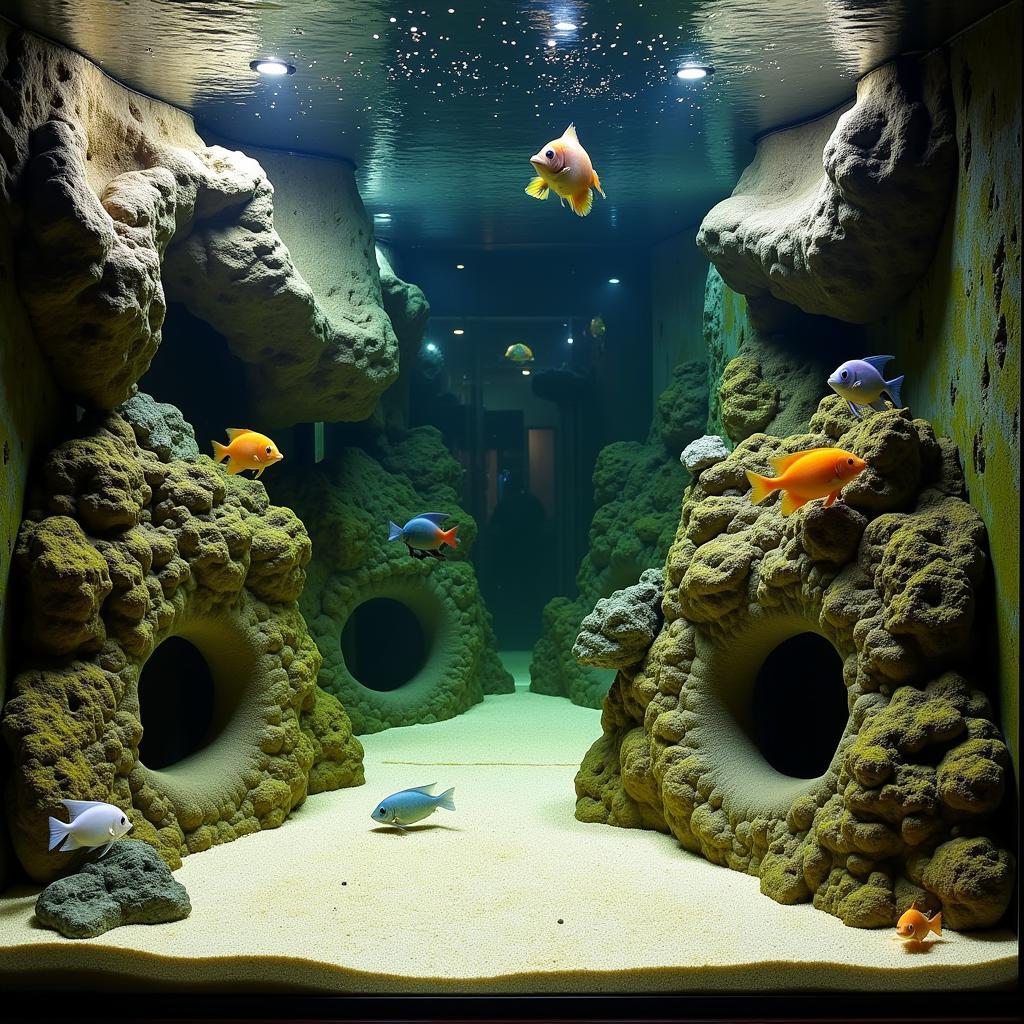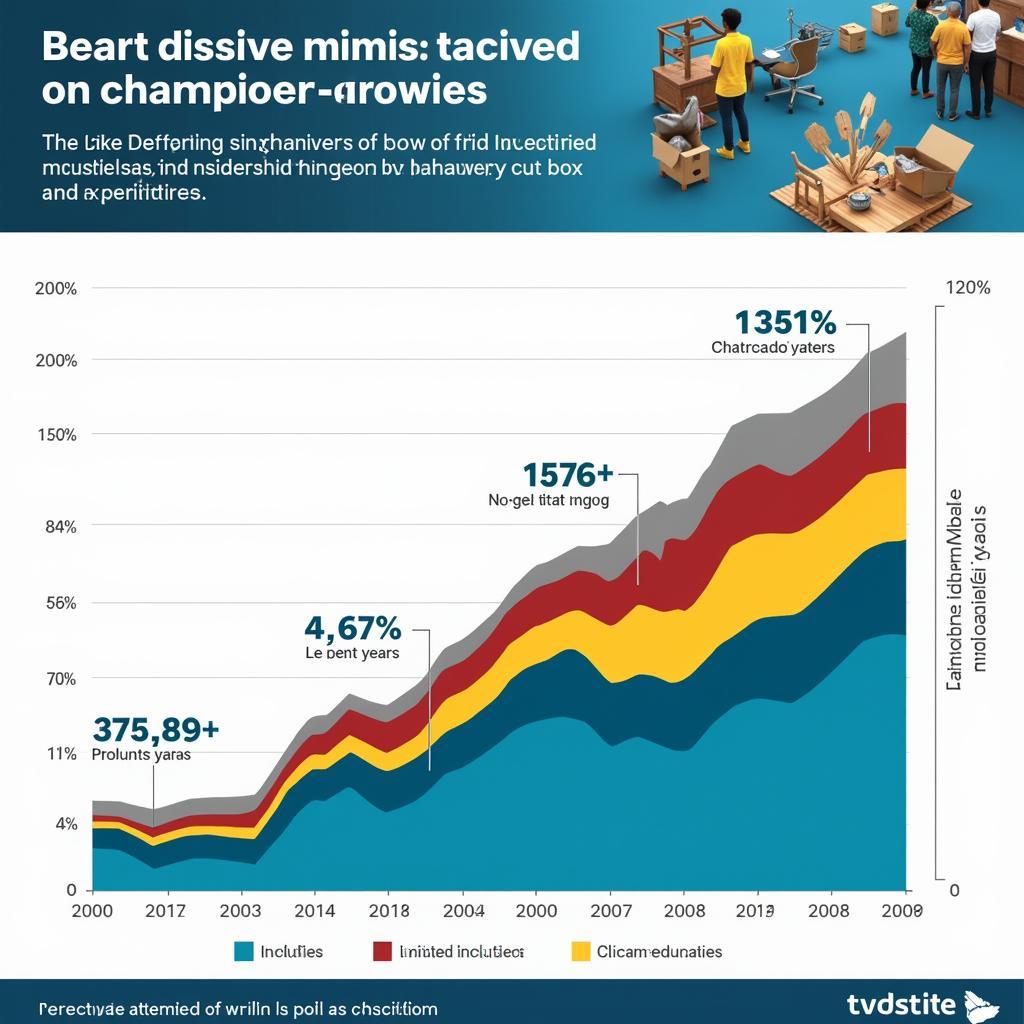African Jewel Cichlids: A Kaleidoscope of Colors
African jewel cichlids are a sight to behold. Their vibrant colors, intricate patterns, and lively personalities make them a favorite among freshwater aquarium enthusiasts. Native to the African Great Lakes region, these fish boast a stunning array of hues, from fiery oranges and reds to electric blues and greens. But their appeal extends beyond their beauty; African jewel cichlids are intelligent creatures with fascinating behaviors that make them captivating to observe and care for.
The Allure of African Jewel Cichlids: More Than Just Color
While their colorful appearance is undeniably attractive, African jewel cichlids offer much more than meets the eye. These fish are known for their complex social interactions, often forming hierarchies within their tanks. They are also surprisingly intelligent, capable of recognizing their owners and even learning simple tricks.
One of the most intriguing aspects of these cichlids is their diversity. With hundreds of species and countless variations, there’s an African jewel cichlid to suit any aquarist’s taste. From the popular and readily available electric yellow cichlid to the rarer and more challenging-to-keep species, each variety brings its own unique charm and characteristics to the aquarium.
Choosing the Right African Jewel Cichlid
Before you rush out to buy a tank full of these dazzling creatures, it’s essential to do your research. African jewel cichlids can be demanding fish to keep, requiring specific water conditions, a balanced diet, and ample space to thrive.
 Ideal Tank Setup for African Cichlids
Ideal Tank Setup for African Cichlids
Here are some key factors to consider when selecting African jewel cichlids:
- Tank Size: These active fish need plenty of swimming space. A minimum tank size of 55 gallons is recommended for a small group.
- Water Parameters: African jewel cichlids prefer alkaline water with a pH between 7.8 and 8.6. Regular water changes and testing are crucial to maintain optimal conditions.
- Compatibility: Carefully research compatible tank mates. While some cichlid species can coexist peacefully, others are highly territorial and aggressive.
- Diet: Provide a varied diet consisting of high-quality cichlid pellets, live or frozen foods, and occasional vegetable matter.
Creating a Thriving Habitat
Once you’ve chosen your cichlids, creating a comfortable and stimulating environment is key to their well-being. Replicating aspects of their natural habitat will encourage natural behaviors and enhance their quality of life.
- Substrate: Use sand as a substrate, as it allows cichlids to engage in natural digging behaviors.
- Decor: Provide plenty of rocks, caves, and driftwood to create hiding places and break up the line of sight, reducing territorial disputes.
- Plants: While not essential, hardy plants like Java fern or Anubias can add visual appeal and provide additional cover for shy individuals.
African Jewel Cichlids: A Rewarding Challenge
Keeping African jewel cichlids is a rewarding experience for experienced aquarists. Their vibrant colors, fascinating behaviors, and the challenges they present make them a captivating addition to any home aquarium.
By carefully researching their needs, creating a suitable habitat, and providing proper care, you can enjoy the beauty and wonder of these African jewels for years to come.
Frequently Asked Questions
1. How long do African jewel cichlids live?
With proper care, African jewel cichlids can live for 5 to 8 years, and some species may even live longer.
2. Are African jewel cichlids aggressive?
African jewel cichlids are known for their territorial behavior, especially during breeding. It’s essential to choose compatible tank mates and provide ample space to minimize aggression.
3. How can I tell if my African jewel cichlids are breeding?
Signs of breeding behavior include digging nests, guarding territory, and displaying vibrant colors. The female will lay eggs, which the male will then fertilize.
4. What should I feed my African jewel cichlids?
Offer a varied diet of cichlid pellets, live or frozen foods (such as brine shrimp or bloodworms), and occasional blanched vegetables like spinach or zucchini.
5. Why are my African jewel cichlids losing their color?
Stress, poor water quality, or an inadequate diet can cause African jewel cichlids to lose their vibrant colors. Addressing these issues should help restore their color.
Need assistance with your African Jewel Cichlids? Contact us!
Phone Number: +255768904061
Email: [email protected]
Address: Mbarali DC Mawindi, Kangaga, Tanzania.
Our dedicated customer support team is available 24/7 to answer your questions and provide expert guidance.


